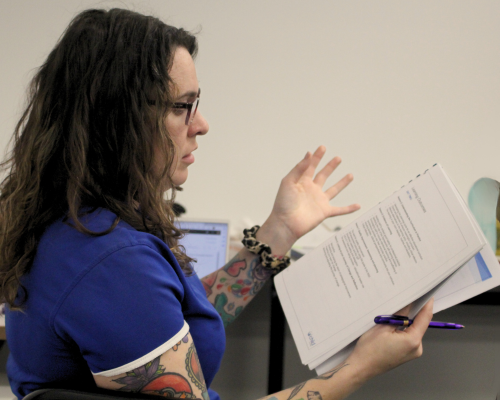As the holiday season winds down, the Early Childhood Education and Care (ECEC) sector experiences a flurry of changes within centre-based services. January and February often usher in new faces, especially in the younger age groups, while older children may be transitioning to big school or advancing within Out of School Hours Care (OSHC) environments. Team members might be taking well-deserved leave, and rooms may be contemplating staff shuffles. Amidst this whirlwind of change, how do we prioritise the best interests of the children involved?
Embracing the chaos
The first step is acknowledging the chaos. Understanding that this period is marked by potential changes and movement within the service is crucial. It’s time to initiate reflection and, surprisingly, conduct a risk assessment to support critical thinking.
Steps to navigate changes within Centre-based services effectively
- Identify key changes and/or challenges: Clearly outline the changes, avoiding unnecessary details. For instance, “The rooms are undergoing a change in staffing, with key educators possibly relocating.”
- Identify potential risk factors: List down challenges that may arise due to these changes. Consider what could be challenging for all children and, importantly, what might be specifically challenging for certain individuals.
- Collaborate on solutions: Work as a team on ideas on how you can combat these challenges.
- Communicate EFFECTIVELY with families and children about the changes.
- Introduce new educators to children before the changes take place.
- Allow visual aids like photos… and so on
- Set a support plan: Develop a plan collaboratively, incorporating the strategies identified. This plan should guide actions when children show signs of being overwhelmed and require additional support.
- Keep your reflections handy: Keep the reflection or a list of strategies and activities easily accessible. This can serve as a go-to resource during challenging moments or as a gentle reminder of the agreed-upon plan.
Communication is key
During times of change, effective communication becomes the key player. Ensuring open and transparent communication among all is crucial for supporting the emotional well-being of children and staff, while also maintaining effective supervision, even in challenging circumstances.
Change is inevitable, but with thoughtful reflection, risk assessment, and proactive planning, your service and team can navigate these transitions successfully. By prioritising the best interests of the children and fostering a supportive environment, we can ensure a smoother journey for everyone involved.
For further insights and support on managing these transitions, consider checking out relevant webcasts that delve deeper into these themes. Remember, you’re not alone in this journey of change – a supportive community and a well-thought-out plan can make all the difference.
Online webcasts to support

Child Australia’s recommended online webcasts to help ECEC professionals navigate changes within centre-based services.
- Introduction to Critical Reflection
Explore all the opportunities for reflection throughout the day in an early childhood education and care setting. - Meaningful Interactions with Children
Learn how to create secure, respectful and reciprocal relationships with children. - Supporting Children with Additional Needs
Take the opportunity to explore practical and positive strategies to support children and families within the context of their Education and Care services. - School Readiness
Understand why play-based learning is the best preparation for children between the ages 2.5 to 4 years. - Using Respectful Interactions to Guide Behaviours
Unpack messages behind everyday statements educators bring with them from their own childhood, and suggests alternative responses.



